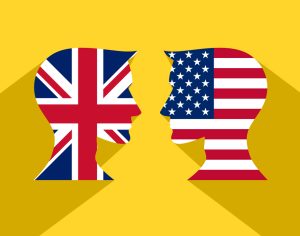At the time of going to press, the Prime Minister was getting ready to travel to Brussels to try and finalise a trade deal with the President of the EU Commission. Whilst the country holds its breath, we look at what a minimalist deal may look like and what businesses can actually do before 31 December.
Boris Johnson first mentioned the possibility of the UK agreeing a trading arrangement with the EU along the lines of the deal the EU has with Australia in February this year. But what would that mean in practice, and does this help businesses prepare for the changes coming in from 1 January 2021? The answer to this is probably no. However, that does not mean that businesses can’t take steps now to prepare for the changes that we do know will definitely take place in the New Year.
Although legally the UK ceased to be part of the EU on 1 February 2020, for most purposes, the effects of Brexit will only actually be felt from 1 January 2021, when the Transition Period ends. However, there remains a good degree of uncertainty about what exactly this will mean for business because the UK and the EU are still negotiating the terms that will govern the relationship between the EU and the UK after 1 January, and notably have not yet agreed a trade deal.
The Government has previously advised that we could seek a trade deal along the lines that Norway has, then Canada (remember Canada plus plus?) and now has moved to sunnier climes – floating the idea of an Australian style trade deal. However, Australia doesn’t actually have a full free-trade with the EU. For the most part it trades on World Trade Organisation Rules so many see this as effectively a no-deal scenario, meaning tariffs on goods and some quotas.
Whilst until the issue of the trade deal has been resolved there are a number of areas of uncertainty for businesses, including, most pressingly for businesses trading goods between the EU and the UK on the level of tariffs, that does not mean that companies cannot prepare. There are things that we do know, and actions that businesses definitely should be taking now if they haven’t done so already.
The major areas that businesses need to be focussing on, depending on their particular set up, are immigration and employment, supply chain, customs requirements and data protection. This is because we know the changes that will happen after 31 December 2020, so a certain degree of control is possible.
Businesses importing or exporting goods across borders will need to understand new rules on customs declarations, dealing with VAT and be prepared for operational changes at the ports (and the knock-on effect of these in terms of costs and delays). Rules relating to moving regulated and restricted goods will change too. The Government has issued guidance, but it’s inevitably generic, so consider seeking advice from accountants and customs experts.
Free movement of people will end on 1 January, replaced by a new immigration system. UK-based businesses employing people from the EEA, or looking to hire from this pool in the future, will need to take steps to ensure compliance; as will businesses with UK nationals working in the EEA. This should include encouraging staff from the EEA to apply under the EU Settlement Status Scheme, considering sponsoring staff through the new visa scheme and investigating local employment laws that apply in the EU Member State(s) in which your employees may operate. If you or any of your employees needs particular professional qualifications in order to operate in the EU, check whether these will be recognised after 1 January when automatic mutual recognition will end.
Businesses should look at their longer term or strategic contracts to ensure they will continue to operate in the way intended in 2021 and beyond. Review areas like the definition of territories (which may assume the UK is in the EU), references to EU laws, and make sure you know which party bears the risk on delays, price fluctuations and ongoing regulatory compliance for example.
The requirements for UK companies handling personal data of UK nationals will remain unchanged in the near term. Businesses handling data relating to EEA nationals however will need to consider how they can continue doing this after 1 January. Businesses may need to put in place contracts for data processing on standard EU approved terms (known as the Standard Contractual Clauses or SCCs). Some will also need to appoint an EU Representative in order to continue processing personal data.
There are things businesses can and should do to prepare for the changes coming on 1 January 2021, and put themselves in the best position possible to deal with whatever the eventual outcome of the trade talks.
“
Share via:








































